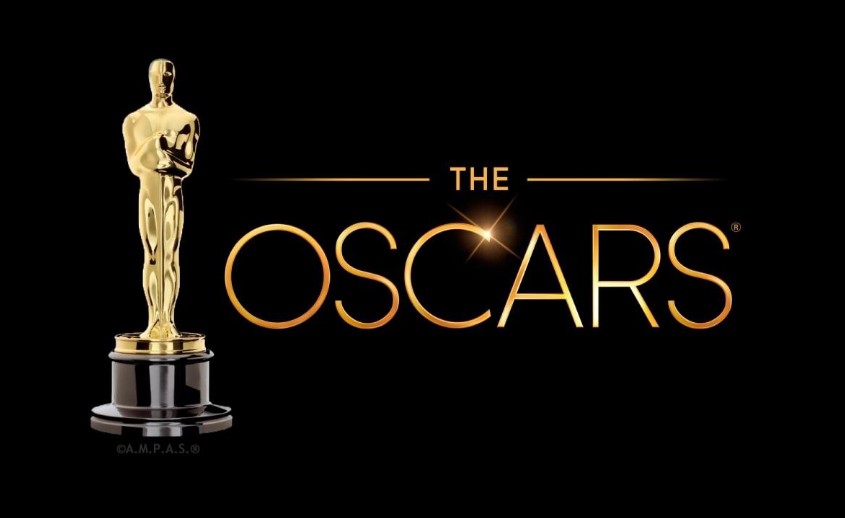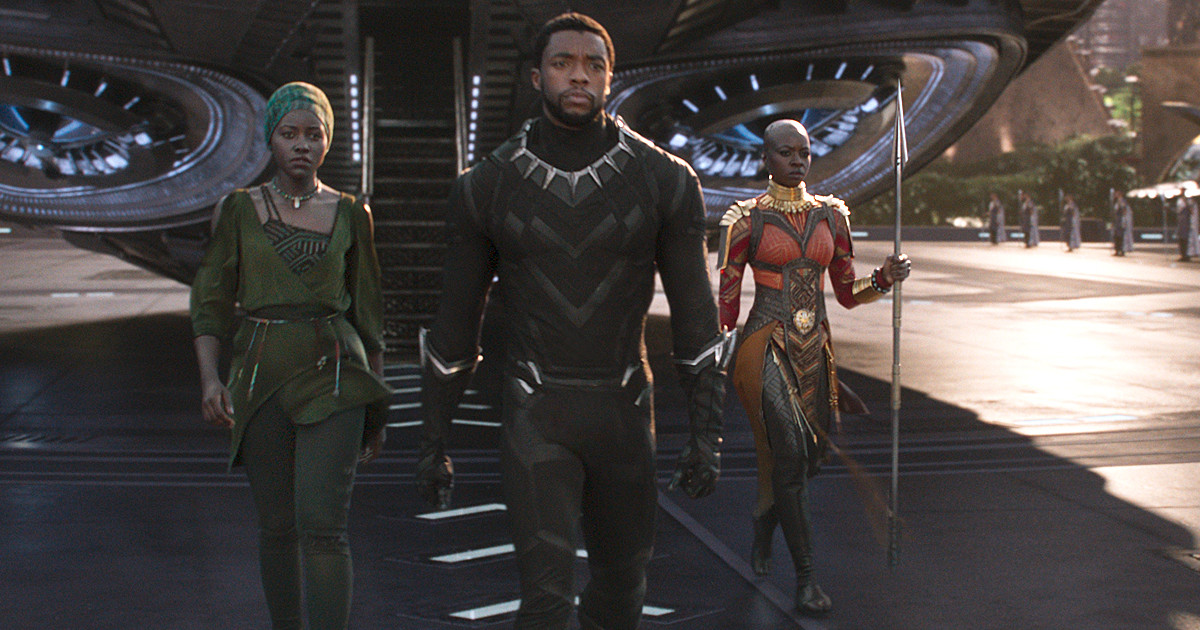The Academy of Motion Picture Arts and Sciences, in the year 2018, have finally come to an epiphany several years if not decades in the making: the annual telecast of The Academy Awards, a product whose broadcast rights are controlled by ABC until 2028 and accounts for about 80% of the academy’s revenue, sucks. I realize that’s not exactly a hot take considering the show’s ratings have been on a consistent decline for a number of years with its last outing amassing a paltry 26.5 million viewers, the lowest ever according to Nielsen. The situation has not been good for an event that’s supposed to be about recognizing the best Hollywood (but, for major categories: independent film) has achieved for the global audience.
Clearly, there’s a popularity problem for Hollywood’s Super Bowl and what better way to make something popular than with a shameless marketing ploy? Hollywood knows blockbusters are the steroid induced, life blood of the industry and they also know their mentioned presence at The Oscars is relegated to technical categories and perhaps the opening monologue of the MC. Thus, in its grand wisdom, the academy’s board of governors decided to harness the unrivaled popularity of “the blockbuster” by giving those films their own major category to revel in: Outstanding Achievement in Popular Film. Devoting more TV time to boosting the prominence of global box office smashes will surely improve the show overall, thus boosting viewership and advertising investment and profit. Problem solved.

Pump the brakes Ricky Bobby! The only thing that the academy has actually done is expose itself as a private organization even more out of touch with just about everything than it could possibly realize. The instantaneous fabrication of a best popular film category is yet another typically corporate misdiagnosis of an issue that’s far more complex and systemic. And by corporate misdiagnosis I specifically mean coming up with the quickest, cheapest and easiest (in ascending order of importance) “solution” to a problem that’s clearly being recognized by the offending party as a trivial inconvenience. The academy’s solution is pandering, confusing, imprecise and ultimately wrong for choosing to treat diabetes with a band aid and a lollipop.
The problem from a ratings perspective isn’t only that blockbusters are underrepresented, but primarily, the show itself is bad. The show’s live format is a millstone that weighs down an ever expanding runtime due to recurring, organic production snafus like late cues and horribly awkward orchestral cut-ins to acceptance speeches that, heaven forbid, exceed their one minute allotment. The show’s pacing is the stuff of bipolar nightmares what with the major categories pushed to the tail end of the show when many viewers have already tapped out due to boredom or sleepiness, but thank goodness we were frosty enough for learning about the best documentary short that we never knew existed in the first place. Also, the show’s host needs to be more dialed in to the role of viewers’/audience’s travel guide and have more significance to the show than the guy or girl who periodically cracks wise about Jack Nicholson being stoned. The host needs to treat this job as more than a side hustle in between “real work” to boost one’s brand and to prepare for it the way any marquee performer worth his or her salt approaches a part: with hard work and practice (which also means more preproduction time for the show’s producers, directors, writers and crew).

What makes this new people’s choice award even more ridiculous is the fact that the academy itself presented this new category in a letter sent to its over 6,000 members without already knowing what its “eligibility requirements” happened to be. Let’s just take a step away from reality and ignore the fact that the entire nomination process has nothing to do with some self-evident, objective quality of a film or contributions to it and everything to do with campaigning for a production’s recognition, thus invalidating any concept of “eligibility” outside of determining if a film was released in the current year. Besides turning The Oscars into Dancing with the Stars complete with phone-in voting, the only determination for popularity is the global box office take: top 5 earners, for instance. How would they not know this? Did they simply not have more politically correct phrasing to communicate this concept at the time? Do they need to scrape a few bucks together to commission the Coen Brothers to take care of it?
Then to take it a step further, if indeed the eligibility for “best popular film” is based on box office, isn’t the winner of such a quantified category predetermined? We all know which film is the highest grossing at every conceivable point in time these days so there’s no arguing what made the most money. If you are trying to introduce some element of subjective taste into the argument for determining the “best” of the highest earning films, then coming to that decision via the tallying of a “popular” vote is more than a tad ironic. Is the academy really interested in opening the can of worms that is defining the elusive difference between “best popular film” and “most popular film?”
At this point I must admit what’s being lost in this op-ed are the other proposals from the academy to improve The Oscars as a TV show. Making a hard commitment to a three hour production, moving the air date to earlier in the year and presenting less prominent awards during commercial breaks are all very reasonable improvements to make. I applaud the academy for finally taking a closer look at the show itself, but I will still raise an eyebrow over it taking so long for them to do so prior to now. But let’s be real, those are mere afterthoughts to the lightning rod that is the best honorably mentioned, people’s popcorn, second best, not really, but kinda, but also not, award.

Those in support of the “outstanding achievement in popular film” will point to the increased opportunities for the recognition of blockbuster productions where quality work and artistry have clearly been displayed, but the politics of the academy and its show have diminished the capacity of genre films to be compared more fairly with their indie, drama, biopic, art house contemporaries. Generally speaking, increased recognition is never a bad thing. Blockbusters employ a ton of fine professionals that make artistic products that have garnered global popularity and their efforts should not be summarily dismissed because a fat paycheck from Mickey Mouse was supposedly the only thing that made that happen.
However, delivering this form of recognition in this way sends an all too familiar message of placating and acquiescence first delivered when “Best Animated Feature Film” was introduced back in 2001. Blockbusters, like animation, are the second class citizens of the award circuit and while their segregation to specialized awards may not formally omit them from nomination to the best film overall category, it essentially suggests voters to do precisely that. In 17 years animated features have gotten their allotted recognition, but haven’t exactly shattered that glass ceiling. Beauty and the Beast (1991) was the first animated film ever to be nominated for Best Picture, but since the creation of the Best Animated category, only Up (2009) and Toy Story 3 (2010) have achieved nominations for Best Picture along with their Best Animated victories. There is no reason to expect blockbusters would be treated any differently, especially when considering this half baked effort was thrown together to appease the House of Mouse due to a little film called Black Panther.

We know that Marvel Studios is campaigning for Black Panther to be nominated for best film proper and we also know the Marvel, Disney, ABC corporate connections. It stands to reason that the academy would be jolted into doing something to please the bigger fish, but this? THIS!? No matter how you look at Black Panther as a film: a showcase for underrepresented ethnicity, a pop cultural phenomenon, an excellent addition to the MCU or just an entertaining action adventure, the argument can be made that it is all of these things and perhaps much more. Ultimately though, it represents a maturity in the evolution of genre films by demonstrating an ability to show more than kicks, punches and special effects. Blockbusters can make meaningful social commentary, feature seminal performances, be inventive with camera technique and craft literary stories that tantalize the mind. You know, recognizing what all the major categories that The Oscars have been awarding for 90 years running. If box office dynamos have graduated beyond all buff and no stuff, why shouldn’t they regularly be considered for nomination for best screenplays, directors, performances by actors or best film overall without the need of a placated category? It’s not as if the king of the box office hasn’t also taken home the crown at The Oscars: Return of the King (2003), Titanic (1997), Forest Gump (1994), Rain Man (1988).
In an interview with the New York Times by K.K. Rebecca Lai and Jasmine C. Lee (last updated on March 4, 2018), UCLA film historian and lecturer Jonathan Kuntz was asked about the reasoning behind the academy’s process and why smaller productions have been favored more and more for the biggest awards. He states, “The Academy Awards has always been, since the early days, Hollywood’s way of helping itself in promoting films. The value of an Oscar to a medium or small film can be great, whereas to a large film, it can be insignificant.” This logic makes all the sense in the world so long as everyone who participates in and benefits from the process fully accepts that these awards are really all about spreading the money around and no one from within or without should really care that much about the outcomes.
Unfortunately, lots of people within and without Hollywood care and there’s no substitution for winning. To paraphrase Herm Edwards: You play to win the game! You don’t play just to get nominated for participation awards. You play for the biggest prize because you feel you made the biggest splash in cinema that year. MCU films have gotten in the habit of making these kinds of annual splashes and they regularly laugh all the way to the bank without a second thought of the added respect of a certain little golden statue. But times, they are a changing. Blockbusters are developing brains and souls. The bar for entertainment is rising and we all continue to be the beneficiaries of it. Let the academy dispense with this separate but equal recognition for film by opening up Best Picture to more than the true story bio-pic and the obscure art house drama.







